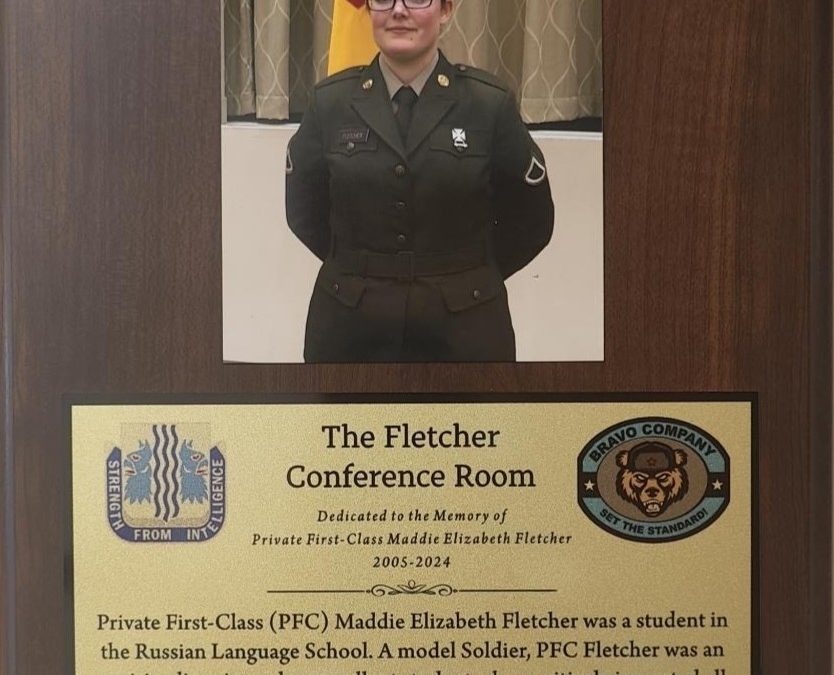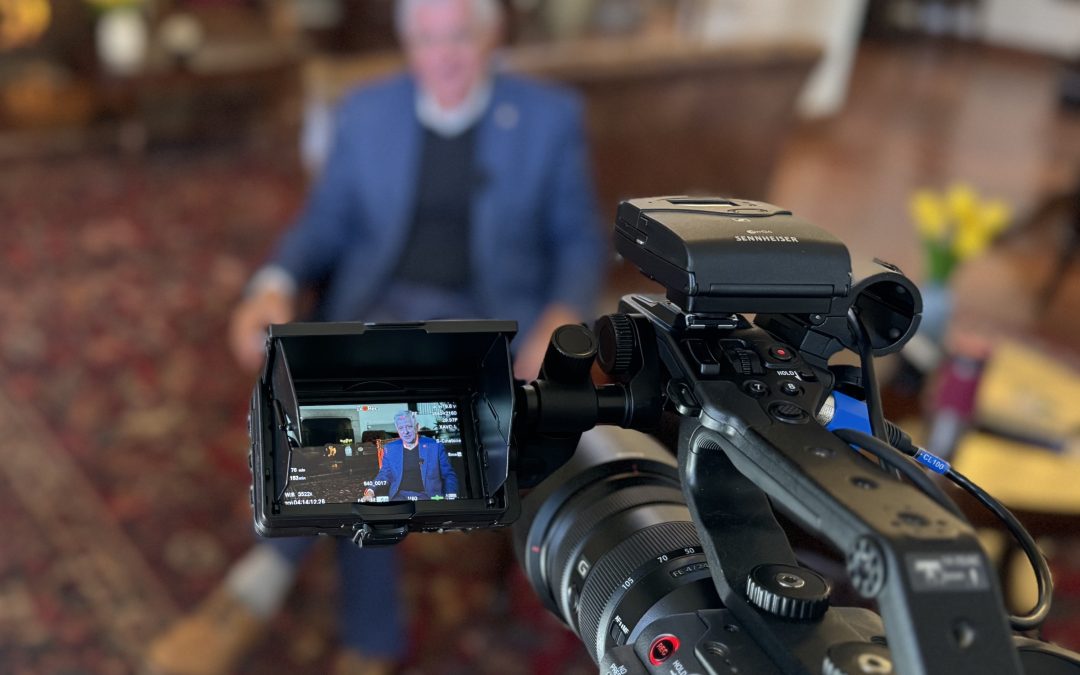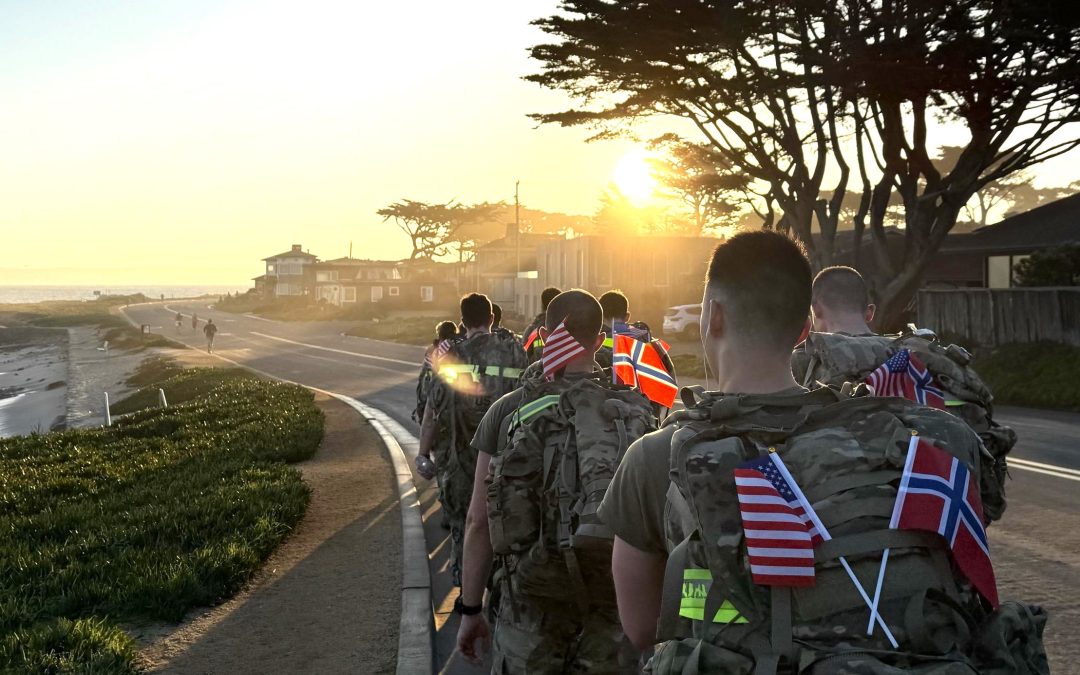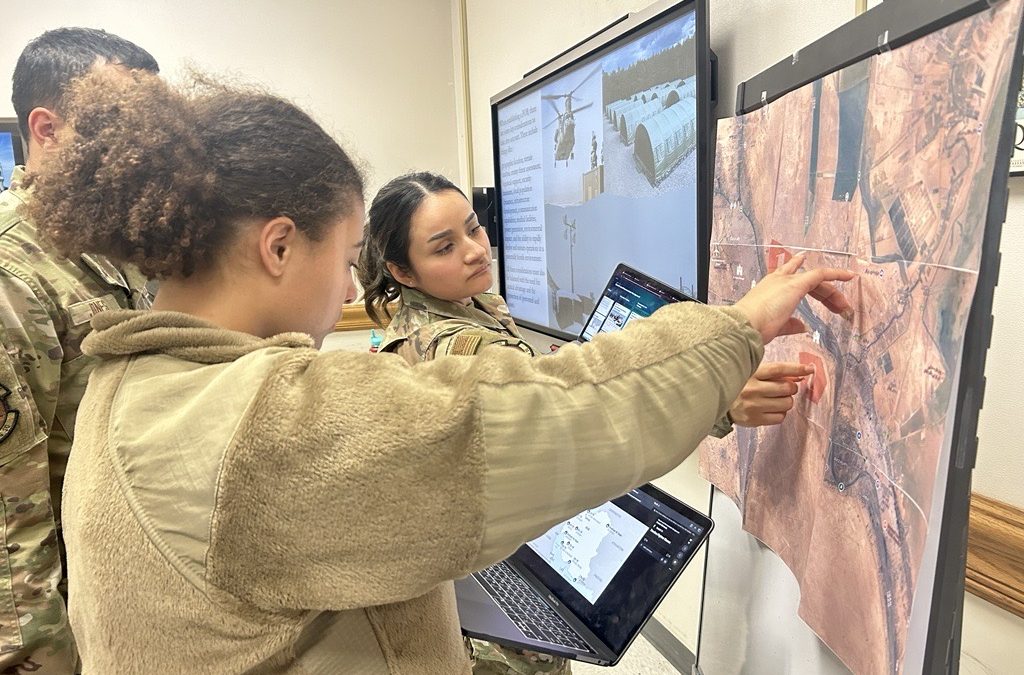By Patrick Bray
DLIFLC Public Affairs

Deputy Commanding General, Brig. Gen. Bryan Fenton (left), 25th Infantry Division, speaks with Army Maj. Gen. Mulyono (right), commander Indonesia Strategic Reserve Command, while Cpl. Michael Calistro (back) interprets during bilateral exercise Garuda Shield September 2014. Personnel from U.S. Army and Indonesian Armed Forces conduct a series of training events focused on peace support operations. (Photo by U.S. Army Sgt. Brooks Fletcher, 16th Mobile Public Affairs Detachment)
MONTEREY, Calif. – Cpl. Michael Calistro, a 2011 Indonesian language graduate of the Defense Language Institute Foreign Language Center, knows first-hand that maintaining proficiency after graduation is very important.
Calistro now serves at Fort Shafter, Hawaii, with the 205th Military Intelligence Battalion, 500th Military Intelligence Brigade, and is working closely with his command to improve training for its linguists.
“The 205th MI recognizes that we have to have the right people for the job and is willing to invest the time into training, to include immersion opportunities. In the end, everything pays off for everybody,” said Calistro, whose eventual training would be followed by a deployment.
The brigade supports its linguists by finding, evaluating and utilizing more opportunities for them to improve their language proficiency, in addition to its policy that linguists train for eight hours per week to maintain their language.
Calistro specifically sought more immersion focused opportunities and, in 2014, identified the U.S. Department of State’s 60-day immersive Critical Language Scholarship as a program that could be employed by the battalion’s Indonesian linguists.
Outside of DLIFLC, language immersion opportunities for military linguists are a rarity. In a time of tightening budgets, these experiences are often too expensive for individual units to utilize, but the CLS is entirely funded by the U.S. Department of State to encourage the mastering of 14 less-commonly taught languages, which includes Indonesian.
For Calistro, who met all of the qualifications, this was not a hard sale to his already-supportive command, and the 205th MI successfully sent Calistro to the Universitas Negeri Malang (the State University of Malang) in Indonesia in 2014.

Cpl. Michael Calistro, a 2011 Indonesian language graduate of the Defense Language Institute Foreign Language Center, poses for a photo in Indonesia in 2014. Calistro went to Indonesia under the U.S. Department of State Critical Language Scholarship program. (Photo courtesy of Cpl. Michael Calistro, 205th Military Intelligence Battalion)
“While studying, I received excellent language instruction from a dedicated teaching staff and from two program-assigned Indonesian university students who worked as private tutors,” said Calistro. “I lived with an Indonesian host family, which permitted me to absorb Indonesian language and culture during my off hours.”
A week after completing the CLS program and returning to Hawaii, Calistro found himself returning to Indonesia to East Java for Garuda Shield, a bilateral military exercise hosted by the Indonesian Armed Forces.
Calistro primarily served as the interpreter for a force-protection team, but also provided linguistic services to other U.S. Army elements in the field, including a Judge Advocate General, forward surgical team, air cavalry unit, and Explosives and Ordinance Disposal.
“These duties required a diverse vocabulary and the ability to work around seldom-used words. My experience with the Critical Language Scholarship greatly diversified my vocabulary and gave me the confidence to work around words I did not know,” said Calistro.
Throughout the exercise, Calistro credits linguists for making a huge difference in local opinion of the U.S. military.

Cpl. Michael Calistro, a 2011 Indonesian language graduate of the Defense Language Institute Foreign Language Center, poses for a photo in Indonesia in 2014. Calistro went to Indonesia under the U.S. Department of State Critical Language Scholarship program. (Photo courtesy of Cpl. Michael Calistro, 205th Military Intelligence Battalion)
“Indonesia is a very diverse country. It’s a very large country with many diverse cultures, but the one thing that ties Indonesia together is the language,” said Calistro. “The people are warm and welcoming and even more so when they hear us speak their language.”
Furthermore, Calistro says that having language skills is important in enhancing relationships. When not participating in the exercise, Soldiers took part in many local activities during their short Indonesia tour.
Training is part of the culture of the U.S. Army and the most critical training is conducted at the unit level by unit leaders. Following Garuda Shield, the 205th MI returned to Hawaii where Calistro and other linguists continued to help the unit improve its training.
The 205th MI received support from the CLS’s Alumni Development Fund, matched with funding from the 500th MI Brigade Command Language Program Manager fund, for further language study. The unit used this to create a 13-week-long language training program for its Indonesian linguists.
“Having learned the value of developing a diverse, mission-oriented vocabulary, I assisted on creating a curriculum to prepare the unit’s linguists for translation work in mission settings,” said Calistro, about the 13-week-long program.
When not deployed, the Department of the Army often tasks the 205th MI with translating documents and other materials in support of U.S. Army initiatives involving Indonesia, part of the reason for the unit’s push to maintain high standards in Indonesian language proficiency.
“As the U.S. continues to rebalance towards the Asia-Pacific, military linguists must look to improve their language abilities in preparation to meet new challenges,” said Calistro.

Photo taken in Indonesia in 2014. Cpl. Michael Calistro, a 2011 Indonesian language graduate of the Defense Language Institute Foreign Language Center, went to Indonesia under the U.S. Department of State Critical Language Scholarship program. (Photo courtesy of Cpl. Michael Calistro, 205th Military Intelligence Battalion)
Building on a foundation of language and cultural knowledge is a concept taught at DLIFLC and the institute has found that immersions aid in language improvement and also allow military linguists to travel the world to receive a more in depth experience in the language.
“Both experiences, the critical language scholarship and subsequent deployment to Garuda Shield, were a fantastic opportunity to test what I learned at DLIFLC. I got to see what I was good at, where the holes were and what needed to be improved,” said Calistro.
The U.S. Department of State CLS features programs at host nation universities which are taught by locals with strong academic backgrounds. Upon graduation, the scholarship alumni receive U.S. academic credit. The scholarship is a high-visibility program with a lengthy and competitive application process. Applicants must be dedicated linguists, working towards a college degree, and possess letters of recommendation from several sources.
Exercise Garuda Shield is a continuation of ongoing efforts by U.S. Army Pacific to engage with the Indonesian Armed Forces on peace support training capacity and stability operations.




